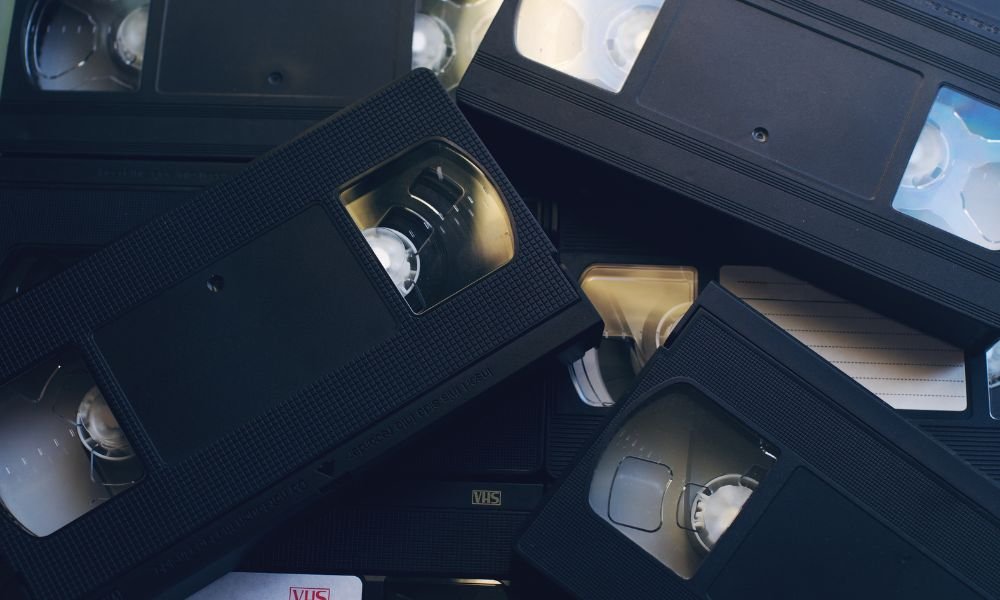The Lifespan of VHS Tapes: What Causes Them To Deteriorate?
VHS tapes hold special places in our hearts. They were the sole entertainment for a fun Friday night for decades. They paused whenever you needed to go away and didn't charge a subscription fee to watch. Even though VCRs have seen a tumble and fall over the years, that doesn't prevent us from enjoying them. Still, there does come a time when something old school, like the videotape, becomes obsolete. Here is what you need to know about the lifespan of VHS tapes and what causes them to deteriorate.
The Anatomy of a VHS Tape
The VHS tape has three layers: the substrate, the backing, and the binding. These three components stop stress and friction from occurring when the film is rewound and played back. The binder is the component touching the heads of the playback machine. The tape has magnetic atoms that the device reads to play the tape's contents.
The Lifespan of a VHS Tape
Videotapes can survive over 30 years under the right conditions! During the videotape's lifespan, it may have faced degradation, especially if it was stored in an uncontrolled environment—a mountainside shed is an unsafe environment, for example. A tape in that environment is susceptible to temperature and humidity swings, decreasing the chance of a successful transfer.
Depending on the degradation, digitizing videotapes that have been stored in less-than-ideal environments is still possible. When storing tapes, place them in a safe room set to a cool temperature. Many people organize their tapes in a glass case in the entertainment center. Without proper storage, tapes decay quickly.
How Does a VHS Tape Decay?
VHS tapes decay from inconsistent room temperatures and unpredictable climates. The magnetic tape suffers from remanence decay, a discoloration from strip demagnetization. When the strip weakens and loses its magnetization, the images on the screen lose their color and detail.
The binding can also suffer from moderately-high temperatures by absorbing moisture from the air. The tape becomes unplayable because of the sticky residue on the magnetic tape. Additionally, recording too many things in a row on one tape damages the sync signals.
What Is the Main Cause of Videotape Decay?
Now that you understand the lifespan of VHS tapes and what causes them to deteriorate, you probably wonder if you can revive them. Owners of VHS tapes can recover their favorites through a process called splicing, where wrinkled and frayed tape sections are cut off and reconnected with a splicing tool.
Heat and humidity are the main culprits of videotape decay. We strongly urge VHS owners to store films in a temperature-controlled environment to avoid corrosion. Ensure each video is in its proper box and positioned vertically on a shelf.
Every family memory is sentimental, from photos to videos. Keep the memories alive by transitioning your videos to digital through the tape-to-digital service from DiJiFi. Our video services will prepare your videos to be viewed on any device.

